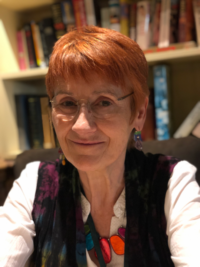My Approach
When I first meet you as a client, my aim is to help you find ways to settle a little into being with me. I know that sometimes we need help to overcome conflicts and blocks in ourselves and in our relationships that may be confusing and difficult to face. I understand that you are a unique and complex individual, with many aspects of who you are, how you experience yourself, and how you have had to adapt as you confront life's struggles. I aim to provide a welcoming space where you can begin to focus on your therapeutic needs with me - as much you feel ready to. We can also focus together on what occurs in our sessions to understand what’s going on for you now within you and between us. This allows new elements of your awareness to emerge. My aim is that a trusting relationship can develop between us. I know this can take time. From a secure base of our sessions, we can begin to explore what brings you to therapy, what you are struggling with, and your hopes for the life you want to live. I believe it is also important to explore what you are interested in, good at, what you enjoy, your resources, what brings you alive.
About Me
With over 25 years working with a wide variety of individuals, II am interested in what has happened in your life, how you experience it, the impact of the past on your life, your relationships with others and with yourself, and what you make of it. I tune into your experience - mind, body, emotions, beliefs. I value your individuality and diversity, and the importance of understanding the relationships and contexts in which you find yourself. I specialise in working with people who recognise their need to recover and heal from the wounds of trauma - big and small adverse experiences. These might be acute and sudden and/or chronic and enduring.
I recognise that we all have different parts of ourselves as human beings, different aspects of who we are, different roles we adopt. Sometimes we are aware of different aspects of who we are and sometimes not. Sometimes it is hard to accept or even tolerate parts of ourselves that we want to get rid of or disown.
With compassion, I encourage you to become curious about which parts of your experience, which emotions, might be blocking you. I hold the belief that you are the expert in your own life, and that you have within you what you need. My role is to help you discover and access your own understandings.
I work with
- Couples
- Individuals
Special Interests
Like all UKCP registered psychotherapists and psychotherapeutic counsellors I can work with a wide range of issues, but here are some areas in which I have a special interest or additional experience.
Types of Therapies Offered
- Existential Psychotherapist


